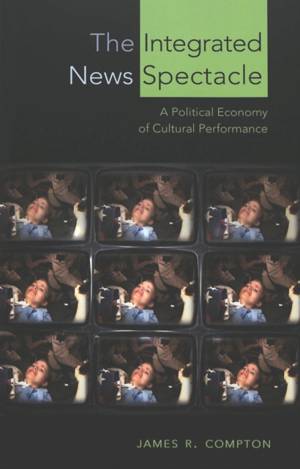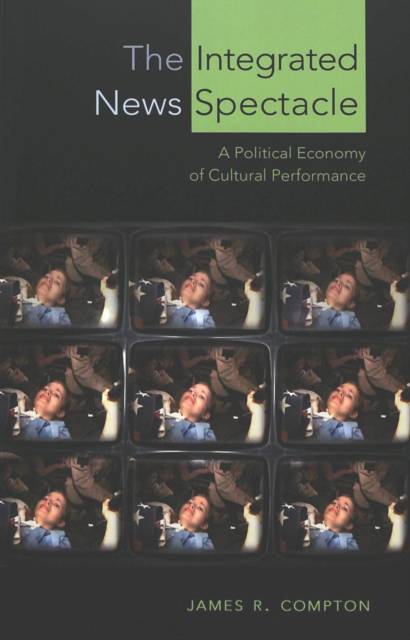
- Afhalen na 1 uur in een winkel met voorraad
- Gratis thuislevering in België vanaf € 30
- Ruim aanbod met 7 miljoen producten
- Afhalen na 1 uur in een winkel met voorraad
- Gratis thuislevering in België vanaf € 30
- Ruim aanbod met 7 miljoen producten
Zoeken
€ 33,95
+ 67 punten
Omschrijving
The Integrated News Spectacle examines the rational organization of control of popular news forms. It uses spectacular media events - such as the mourning of Princess Diana, the Monica Lewinsky presidential scandal, and the Gulf wars of 1991 and 2003 - as entry points into a discussion of the broader context surrounding an integrated system of commodity production, distribution and exchange.
James R. Compton critiques the generally accepted notion of tabloidization associated with media spectacles, and situates these dramatic narratives within a broad historical context. Drawing on the work of Guy Debord, David Harvey, and Pierre Bourdieu, this book explains how the power relationships associated with media events can best be comprehended by revealing the practical application of the logic of spectacle - a logic characterized by the transposable circulation and promotion of cultural commodities.
James R. Compton critiques the generally accepted notion of tabloidization associated with media spectacles, and situates these dramatic narratives within a broad historical context. Drawing on the work of Guy Debord, David Harvey, and Pierre Bourdieu, this book explains how the power relationships associated with media events can best be comprehended by revealing the practical application of the logic of spectacle - a logic characterized by the transposable circulation and promotion of cultural commodities.
Specificaties
Betrokkenen
- Auteur(s):
- Uitgeverij:
Inhoud
- Aantal bladzijden:
- 246
- Taal:
- Engels
- Reeks:
- Reeksnummer:
- nr. 6
Eigenschappen
- Productcode (EAN):
- 9780820470702
- Verschijningsdatum:
- 19/07/2004
- Uitvoering:
- Paperback
- Formaat:
- Trade paperback (VS)
- Afmetingen:
- 160 mm x 230 mm
- Gewicht:
- 369 g

Alleen bij Standaard Boekhandel
+ 67 punten op je klantenkaart van Standaard Boekhandel
Beoordelingen
We publiceren alleen reviews die voldoen aan de voorwaarden voor reviews. Bekijk onze voorwaarden voor reviews.











